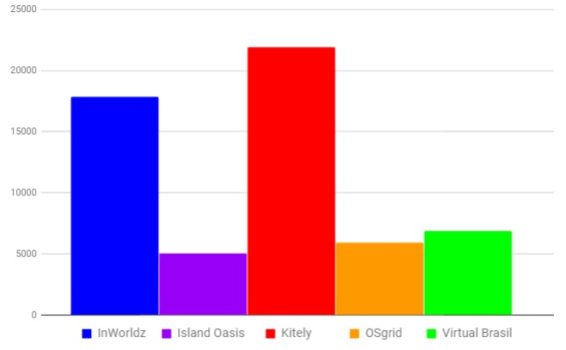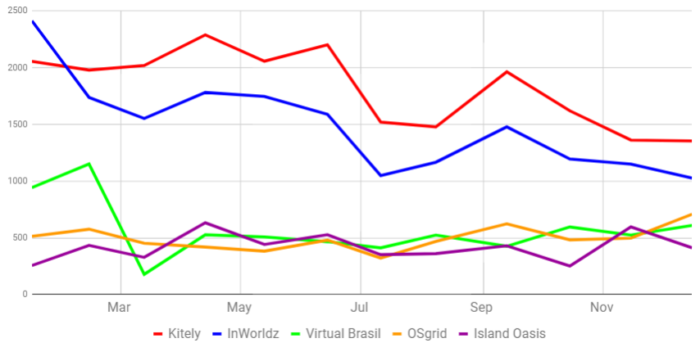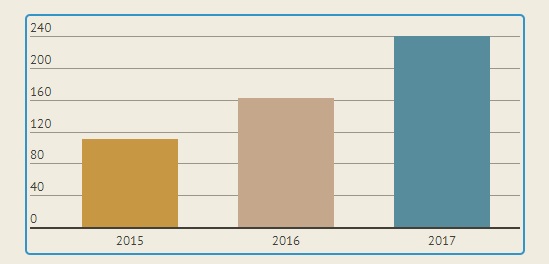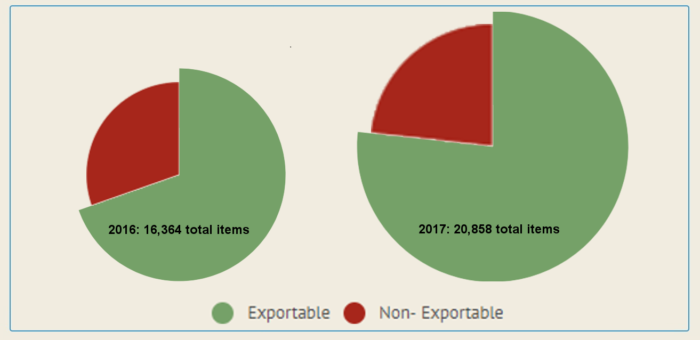One of the most important numbers in OpenSim is how many new people sign up for accounts each month. New people means new customers for merchants, new creators and performers who help improve quality of life on the grid, new people to interact with, and, of course, potential new land renters for the grids themselves.
This year, Kitely was the grid that brought in the most new users. And, since Kitely is hypergrid-enabled, these users have been able to travel to most of the other OpenSim grids, enriching the entire community.

That is not to say that closed commercial grids aren’t valuable, as well. InWorldz, the only closed grid on our list, does not allow hypergrid travel. However, the average InWorldz resident has been to three other OpenSim grids. InWorldz has invested significant resources in marketing over the past few years. Creating an account on an OpenSim grid for the first time is not easy — users have to first know what OpenSim is, then the interface for adding a new grid to the Firestorm viewer is not intuitive, and users also have to visit the grid’s website in order to create a new account. Once users get over that initial learning hurdle, visiting other grids becomes much less of a challenge.
We have been collecting user registration numbers since 2009. They are not perfect — people sometimes create multiple accounts, though that is likely to have been declining as more people travel the hypergrid and use the same avatar everywhere.
And just because someone has created an account, it doesn’t mean that they visited the grid — or that they came back after they visited the first time.
Finally, there is no way to double-check these numbers. With land area, people can go in and see if the regions are actually there. With active users, they can log in and see if there are people on the grid. Whenever there’s a discrepancy, they post on social media posts and send us angry emails. With registered users, however, we have to take the grid’s word for it.
Both Kitely and InWorldz reported declines in the number of new users that signed up for accounts each month, but Kitely held on to the top position for eleven of the last twelve months.
For the year as a whole, Kitely registered 21,888 new users and InWorldz registered 17,875.

Three other grids, Virtual Brasil, OSgrid, and Island Oasis competed for third place all year, but Virtual Brasil came in slightly ahead of the others with 6,865 new users registered in 2017, followed by OSgrid with 5,924 and Island Oasis with 5,024.
InWorldz most active
InWorldz had the highest average monthly active users of any OpenSim grid this year.
However, the grid only reported active user numbers for the first three months of the year and those numbers were declining. Even if that decline remained steady, however, InWorldz would still have had the highest active user numbers — though they would have been 4,612 instead of 5,620.
OSgrid was in second place with 3,842 average monthly active users, followed by Metropolis with 3,629, DigiWorldz with 1,676, Island Oasis with 1,352, Kitely with 1,213, and Lost Paradise with 1,016.
InWorldz is a closed commercial grid. The other grids on this list are all hypergrid-enabled, allowing travel from one grid to another, shopping on other grids, multi-grid friend lists, and cross-grid instant messages.
Metropolis and OSgrid are both non-profit grids that allow users to connect their own regions. Both grids accept donations and are part of the Amazon Smile program, where a percentage of all your purchases goes to help the grids. In addition, OSgrid is a registered US non-profit, allowing donors to deduct donations from their taxes.
You can donate to Metropolis here and donate to OSgrid here.
The Kitely Market
As a reader pointed out in the comments, I originally neglected to mention the Kitely Market. Here, Kitely stands in its own unique category, since no other grid or vendor has a viable multi-grid marketplace.
Kitely doesn’t disclose how many people use their marketplace, but it does offer some numbers, including the number of different items listed, and the grids the market delivers to.
Currently, anyone can go to the Kitely Market, buy something online using either PayPal or Kitely Credits, and have it instantly delivered to their avatar on any hypergrid-enabled grid. And if their grid isn’t hypergrid enabled, the grid owners can still opt to receive Kitely Market deliveries by following these instructions.
As of the end of 2017, the Kitely Market is delivering products to avatars on 240 different grids — a growth of 48 percent compared to this time last year.

The total number of product variations listed on the Kitely Market has also grown, from 16,364 at the end of 2016 to 20,858 last month. The Kitely Market groups listings into products, such as multiple colors of the same dress, and the number of distinct products grew from 8,551 to 11,014. Those growth rates were also in the double digits last year, 27 percent and 29 percent, respectively.

Kitely Market merchants can also choose whether to make their listing items exportable or not. If they’re exportable, then users can have them delivered to any grid. Non-exportable items can only be used on the Kitely grid and cannot be delivered to other grids, taken to other grids via hypergrid teleport, or downloaded in OAR export files.
At the end of 2016, 70 percent of all listings were exportable. Today, that percentage is up to 77 percent, a sign that Kitely Market merchants are increasingly comfortable with hypergrid commerce.
- Kitely Mega Worlds on sale for $90 per month - July 19, 2024
- OpenSim regions up, actives down with summer heat - July 15, 2024
- People think AIs are conscious. What could this mean for bots in OpenSim? - July 12, 2024

